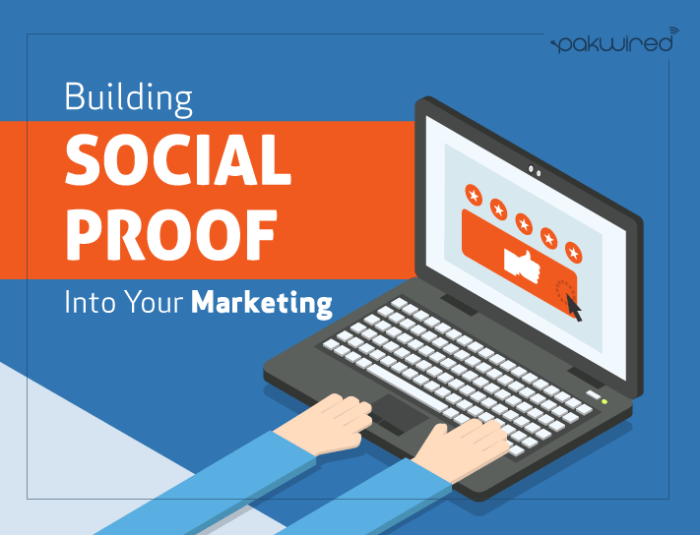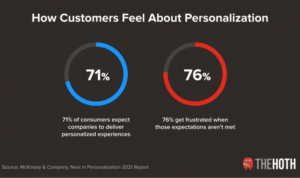Building Social Proof sets the stage for success, showing why it’s a game-changer in today’s digital world. From testimonials to social media validation, we’ll dive into the power of influence.
Let’s explore the different types of social proof, effective strategies to gather it, and the tools available for managing it.
Importance of Building Social Proof

Social proof is essential for businesses and individuals because it helps establish credibility, trust, and authority in the eyes of potential customers or followers. By showcasing positive feedback, testimonials, reviews, and endorsements from satisfied customers or influential figures, social proof can influence decision-making and encourage others to take action.
Influencing Decision-Making
- Social proof can sway consumer behavior by highlighting the popularity of a product or service.
- Seeing others endorse a brand or product can create a sense of FOMO (fear of missing out) and prompt individuals to make a purchase.
- Positive reviews and testimonials can provide reassurance and validation, reducing the perceived risk of trying something new.
Building Trust and Credibility
- When a business or individual has a strong social proof presence, it signals to others that they are reliable and reputable.
- Having a large following or customer base can demonstrate authority and expertise in a particular industry or niche.
- Social proof can help differentiate a brand from competitors and showcase unique selling points that resonate with target audiences.
Types of Social Proof: Building Social Proof
Social proof comes in various forms, each with its own unique way of influencing consumer behavior and building trust.
Testimonials
Testimonials are personal recommendations from satisfied customers, showcasing their positive experiences with a product or service. They are effective in building credibility and trust, especially when they come from recognizable individuals or influencers.
Reviews
Reviews provide feedback from customers who have used a product or service, helping potential buyers make informed decisions. Positive reviews can significantly impact purchasing decisions, while negative reviews can highlight areas for improvement.
Case Studies
Case studies delve deeper into specific success stories of customers, detailing their challenges, solutions, and outcomes. They are powerful in showcasing real-life examples of how a product or service has helped others achieve their goals.
Social Media Validation
Social media validation involves showcasing social proof through likes, shares, and comments on platforms like Facebook, Instagram, and Twitter. It creates a sense of popularity and social acceptance, influencing others to follow suit.
Examples of Companies Utilizing Social Proof
- Amazon: Amazon displays customer reviews and ratings prominently on product pages, helping shoppers make informed purchasing decisions.
- Peloton: Peloton features testimonials from satisfied customers on their website and social media, highlighting the positive impact of their fitness equipment.
- Salesforce: Salesforce showcases case studies of successful businesses using their CRM software, demonstrating the tangible benefits of their solutions.
- Lululemon: Lululemon leverages social media validation through user-generated content and influencer collaborations, creating a sense of community and belonging among their customers.
Strategies for Building Social Proof
Building social proof is crucial for establishing credibility and trust with your target audience. Here are some practical strategies to help you gather social proof and enhance your brand reputation:
Utilize Customer Reviews
- Encourage satisfied customers to leave reviews on your website or third-party review platforms.
- Showcase positive reviews prominently on your website and marketing materials.
- Respond to both positive and negative reviews to show that you value customer feedback.
Forge Influencer Partnerships
- Collaborate with influencers in your industry to promote your products or services.
- Share influencer-created content on your social media channels to reach a wider audience.
- Ensure that the influencers you partner with align with your brand values and resonate with your target demographic.
Engage on Social Media, Building Social Proof
- Interact with your followers by responding to comments, messages, and mentions.
- Share user-generated content on your social media profiles to showcase customer experiences.
- Run social media contests or campaigns that encourage customers to engage with your brand and share their positive experiences.
Leverage User-Generated Content
Encourage your customers to create and share content related to your brand, such as testimonials, photos, and videos. User-generated content adds authenticity to your brand and helps build trust among potential customers.
Encourage Positive Testimonials
Make it easy for satisfied customers to leave testimonials by providing clear instructions and multiple platforms for them to share their feedback. Offer incentives or rewards for customers who take the time to leave positive testimonials, such as discounts or exclusive offers.
Tools and Platforms for Managing Social Proof

When it comes to managing social proof, businesses have a variety of tools and platforms at their disposal to help them showcase positive feedback and testimonials from customers. These tools can range from review platforms to social listening tools and customer feedback software, each serving a specific purpose in building credibility and trust with potential customers.
Review Platforms
Review platforms like Trustpilot, Yelp, and Google My Business allow businesses to collect and display customer reviews in one centralized location. These platforms often offer features such as review monitoring, responding to customer feedback, and showcasing ratings to help businesses establish credibility and transparency.
Social Listening Tools
Social listening tools such as Hootsuite and Sprout Social enable businesses to monitor social media channels for mentions, comments, and conversations related to their brand. By staying informed of what customers are saying online, businesses can address feedback in real-time and leverage positive sentiment to enhance their social proof.
Customer Feedback Software
Customer feedback software like SurveyMonkey and Qualtrics provide businesses with the tools to gather feedback through surveys, polls, and questionnaires. By collecting and analyzing customer feedback, businesses can identify areas for improvement, showcase positive testimonials, and enhance their reputation among potential customers.
Choosing the Right Tools
When selecting tools and platforms for managing social proof, businesses should consider factors such as features, pricing, and usability. It’s essential to choose tools that align with your specific needs and budget, ensuring that you can effectively showcase social proof to build trust and credibility with your target audience.





